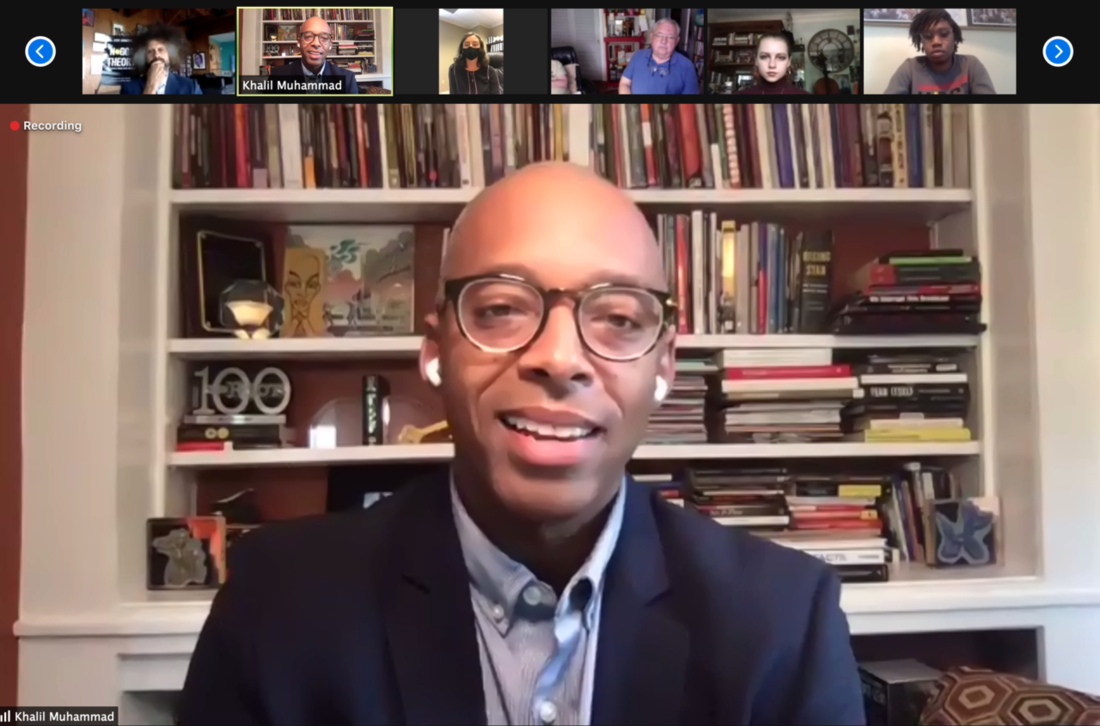FSU BLSA Hosts Discussion on Police

Harvard Professor Khalil Gibran Muhammad speaks during Monday's
panel on the origins of police and the movement for reform.
On Monday, October 5, the Black Law Students Association (BLSA) hosted “TPD, Police and Their Origins: Defunding, Demilitarizing and Dismantling" via Zoom. The three-person panel was moderated by Wayne A. Logan, FSU Law Steven M. Goldstein professor. Panelists included Jody David Armour, Roy P. Crocker professor of law at the University of Southern California Gould School of Law; Khalil Gibran Muhammad, professor of history, race and public policy at the Harvard Kennedy School and the Suzanne Young Murray professor at the Radcliffe Institute for Advanced Studies; and Delilah Pierre, communications director of the Tallahassee Community Action Committee.
Professor Logan began the conversation with questions submitted by BLSA student representatives and then opened the discussion to the nearly 100 attendees. Panelists discussed the origins of policing in America, and over policing and under policing in Black communities.
“African Americans since the 1960s and 70s, right up through the crack era, were essentially offered by their own elected officials and others, more policing or less policing, more prisons or less prisons, and so as moral agents they made a choice, ‘I’d rather have more police and more prisons than fewer of either,’” said Muhammad. “What was left out of the conversation was any kind of redistribution of economic or political resources—that is to say, more schools, more jobs, more hospitals, more affordable housing. So, when people are forced to make ‘choices’ based on a limited basket of goods, we shouldn’t be surprised that they are often expressing support for these things.”
The panel also discussed unconscious bias, law enforcement training, disaggregating the policing function, what role the media plays in shaping the narrative, and what it means to “protect and serve.”
“We need to move away from retribution, retaliation and revenge toward restoration, rehabilitation and redemption,” said Armour. “That’s the kind of fundamental shift that we have to make if we are going to make deep cuts in mass incarceration, which is really about violent offenders, not low-level, non-violent ones.”
This is the first of BLSA’s year-long series of discussions aimed at contextualizing racism across institutions and providing a space for those interested in learning how to ensure a more equitable and unified future. Pierre addressed her closing remarks directly to the law students, “You in your positions as law students, and everyone here, need to think carefully about how we go about policing Black communities because it will determine the very future of this country.”
A recording of the event is available online.
Published on October 9, 2020

